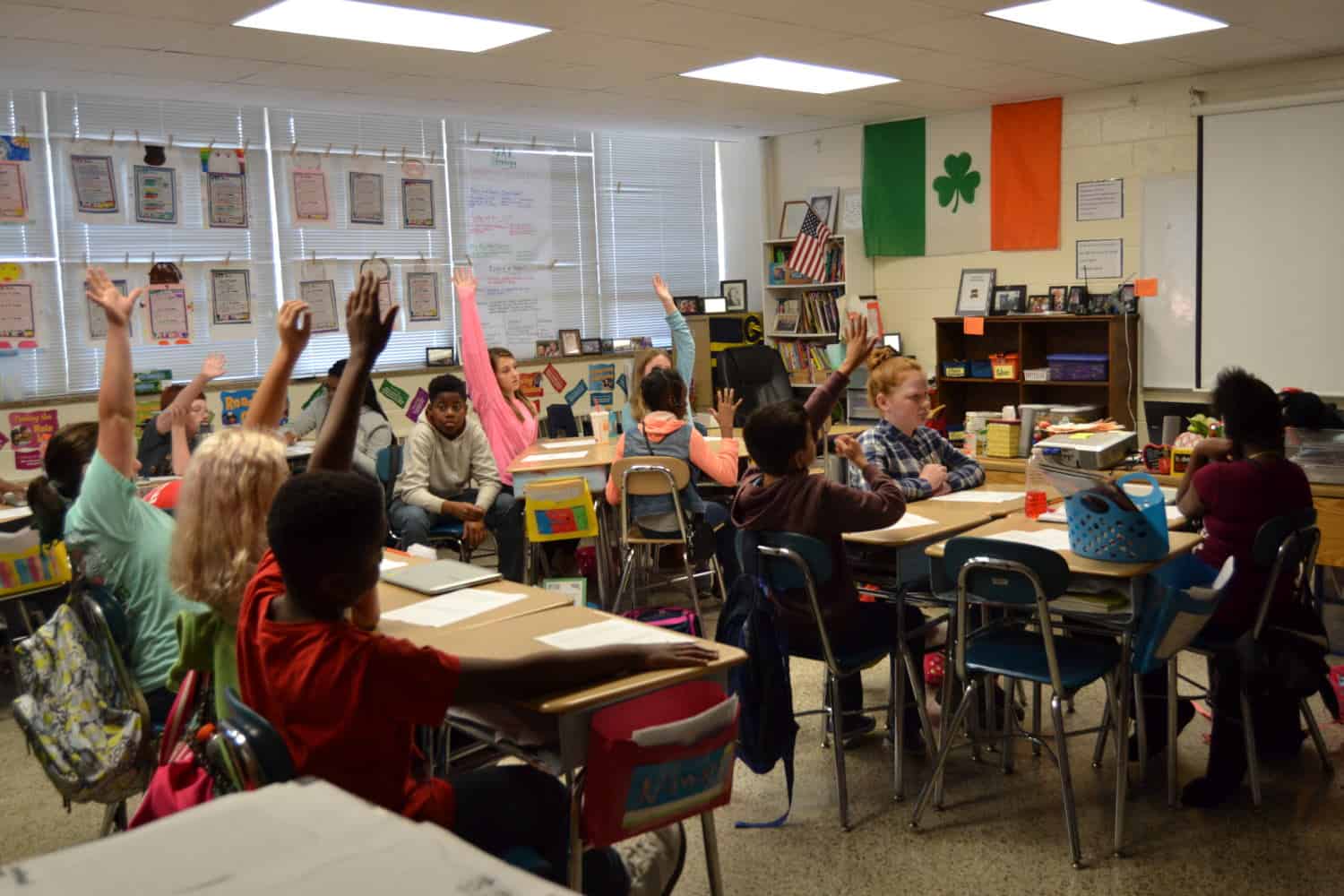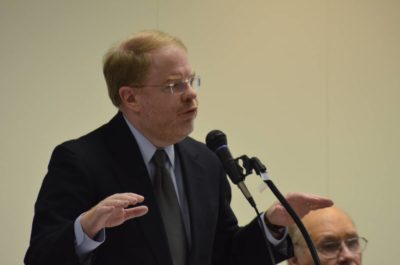The State Board of Education decided during a conference call today to again send back to a lower commission a plan to streamline the process that allows out-of-state teachers to work in North Carolina.
An original proposal from The Professional Educator Preparation and Standards Commission (PEPSC) would have allowed licensed out-of-state applicants with three or more years of teaching experience in another state who have met that state’s testing requirements to start teaching in North Carolina without going through extra hoops.
State Board members were uncomfortable with that, citing concerns that the move would weaken North Carolina teaching standards. They sent the subject back to the commission, which tried to address these concerns by recommending monitoring of out-of-state teachers for how effective they are once they come in state.
State Board members were still uncomfortable with the proposal at this month’s meeting. They ultimately formulated a way forward that would keep in place language in current policy that requires the State Department of Public Instruction (DPI) to ensure out-of-state candidates took tests that uphold standards comparable to what North Carolina has.
They delayed voting until a conference call earlier today, where they heard from DPI staff on their ability to do the comparisons necessary to make the plan work. Staff came back instead with the new plan, which would use EVAAS data from institutions of higher education to vet the standards of incoming teachers from out of state.
EVAAS stands for the Education Value-Added Assessment System. It’s a program developed by SAS to measure the growth of students across the state. Learn more about that here.
Under the plan, DPI would look at EVAAS data of North Carolina teachers who have graduated from out-of-state colleges and universities and determine if they beat North Carolina’s average. Out-of-state teachers coming from institutions that do perform better than average on EVAAS would be allowed to come into North Carolina and teach without taking any additional exams. Otherwise, they would have to take North Carolina’s licensing tests.
“This is an alternative to comparability, this is not comparability?” asked Board Member Olivia Oxendine. “Is that correct?”
Board members asked staff if they had the ability to do the comparability analysis necessary.
“I would probably not feel comfortable making any agency commitments,” said Deputy State Superintendent Maria Pitre-Martin.
She added that if the Board decides they want people doing comparability analysis, funding could be found for that, but staff was looking at a different approach that would be quicker and wouldn’t require the same level of resources.
Tom Tomberlin, director of District Human Resources at DPI, said that actually figuring out if other state’s tests held teachers to comparable standards is very difficult. He said that not only would DPI have to figure out the comparability of the licensing exams for 49 other states, but if a veteran out-of-state teacher wanted to come into North Carolina, then DPI would also have to determine the comparability of the licensing test that teacher took when they initially became a teacher, no matter how long ago it was.
“Not being an expert, I fear I would open up the agency to lawsuits,” Tomberlin said.
There was a lot of back-and-forth between Board members about the proposal. One sticking point is the fact that the teachers would not necessarily have graduated from educator prep programs and may have undergraduate degrees in something other than education. The plan only applies to the institutions they graduated from, not what degree they received.
The Board voted to send the proposal back to PEPSC again and said that PEPSC should incorporate the discussion of the State Board in making new recommendations, including recommendations on having out-of-state teachers show they are up to the standards of North Carolina teachers within a year after coming to work in the state.
While all this is going on, a Senate Bill filed this week would essentially revert the process for out-of-state teachers back to PEPSC’s initial proposal. That bill has not yet been heard in any committees.
Currently, out-of-state teachers can come work in North Carolina without taking the state’s licensing exams if they come from a state that essentially requires exams identical to North Carolina’s.



